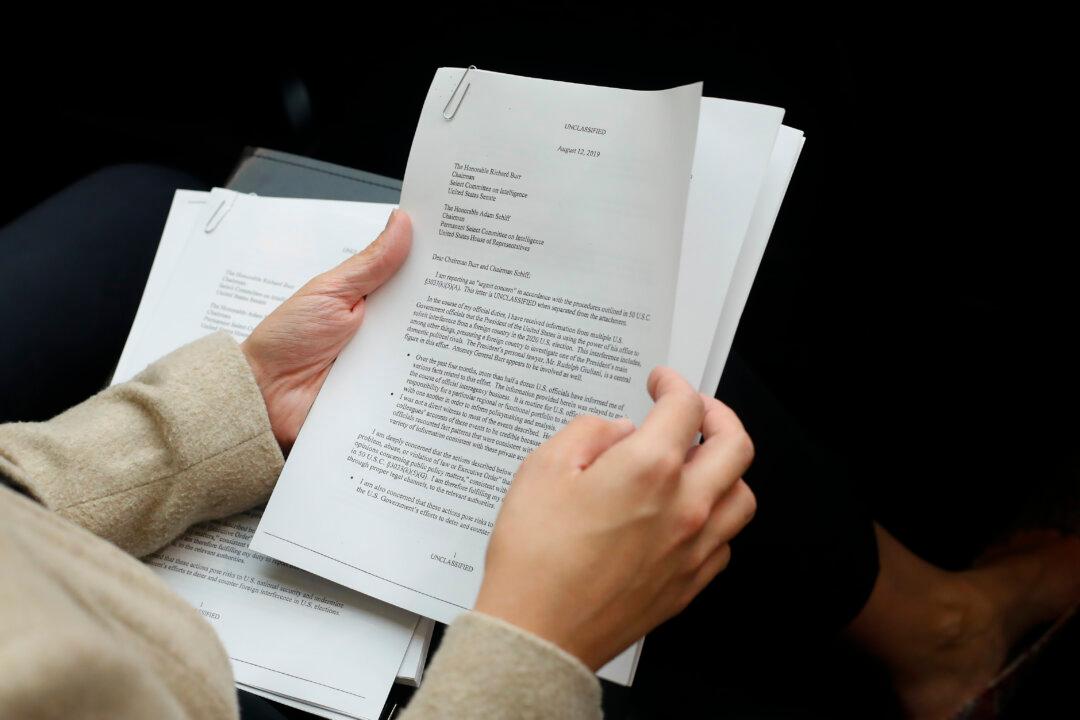A fundraiser for the person who filed a complaint against President Donald Trump based largely on a phone call Trump made with the Ukranian president has raised over $130,000 as of the morning of Sept. 27.
The complaint from the person—who has been described as a whistleblower but did not have direct knowledge of the call, instead passing on second-hand information—was released on Thursday, a day after the transcript of the call between Trump and Ukranian President Volodymyr Zelensky was released.





